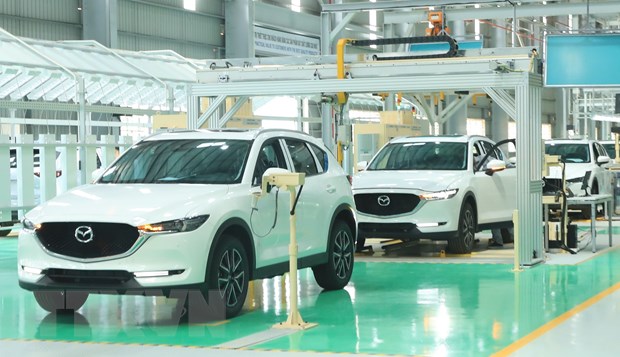The Ministry of Finance plans to eliminate the import tax for auto materials and parts in order to support the development of the country’s automobile industry.

The Ministry of Finance plans to eliminate the import tax for auto materials and parts in order to support the development of the country’s automobile industry.
The tax cut was included in the Government’s revised decree on the schedule for preferential import tariffs, flat taxes, compound tariffs and out-of-quota import tariffs.
The Ministry of Finance said it will develop preferential tax policies for raw materials and auto parts for automobile manufacturing and assembly from now until 2023.
This decree is expected to remove bottlenecks in the development of prioritised industries, including the automobile industry, and promote the strengths of part suppliers to increase the localisation rate (the percentage of parts that are produced locally).
Under the Comprehensive and Progressive Agreement for Trans-Pacific Partnership (CPTPP), which came into force on December 30, 2018, the import duties on completely built-up cars (CBUs) from CPTPP member countries will gradually fall from 70 per cent to zero over the next seven to nine years.
The Europe-Viet Nam Free Trade Agreement (EVFTA), which was signed on June 30 this year, includes a similar commitment. It stipulates that the import tax on CBUs from EU countries will gradually decrease to zero per cent after nine to 10 years.
The import duty was eliminated for cars from ASEAN countries last year. By 2030, the Vietnamese automobile market will be fully open to major automobile production centres around the world including Japan, Mexico and the EU.
The ministry said Viet Nam’s part suppliers are mainly small- and medium-sized enterprises with low production capacity. Among about 1,800 spare part businesses, only about 300 are participating in the production networks of multinational corporations. — VNS





